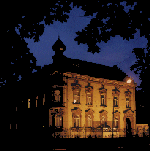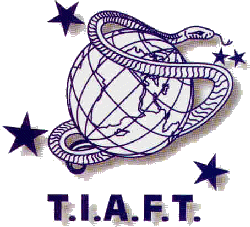| |
Abstracts Opening Lectures Interpretation of Analytical Results Drugs of Abuse and Doping Validation of Analytical Procedures Analysis of Alternative Materials Driving under the Influence Free Topics Posters |
|
Opening address at the 37th TIAFT Meeting
Krakow, 6th September 1999Hanna Suchocka, Minister of Justice of Poland

Professor Wennig,
Distinguished Guests,
Ladies and Gentlemen,
It is particularly satisfying for me, as Minister of Justice, that Poland is playing host to such an eminent group of specialists in the field of forensic toxicology from Europe, North America, Africa, Asia and Australia.
I fully appreciate the importance of this conference, and my presence here today confirms my sincere interest in the forensic sciences. I would also like to take this opportunity to say that, in my opinion, their development has great significance for the correct functioning of the administration of justice as a whole.
Rapid advances in science at the threshold of the 21st century - especially in forensic toxicology and its younger sister, forensic haemogenetics - and the ever broadening range of technology at Your disposal mean that You are able to undertake increasingly complex research challenges. However, the fruits of Your labour - the development of new methods and research procedures - can, unfortunately, often be the bane of the justice system, which is unable to keep pace. As a consequence, serious problems can arise in the assessment of the evidential value of experts' reports, prepared using differing methods, techniques and research apparatus. Increasingly rigorous research criteria and the ever deeper knowledge of forensic experts therefore necessitate better training of judges, public prosecutors and barristers in the field of assessment of evidence, especially scientific evidence.
Systemic methods of professional training are currently being introduced in many forensic laboratories. I believe that similar methods of training lawyers in the field of forensic science should also be introduced.
In turn, appropriate mechanisms of control and self-control of research in Your laboratories should result in the standardization of applied research procedures, and the application of systems of quality control should lead to international accreditation of forensic laboratories.
Only such types of mutually beneficial interaction between the administration of justice and the scientific disciplines serving it will allow the whole system to function correctly.
I would like to make use of this occasion to thank all forensic toxicologists - through Yourselves - for the help they render every day to the administration of justice. I recognise the value of your work fully and it is with great interest that I have become acquainted with the immensely rich conference programme. I sincerely congratulate all the authors of the presented scientific papers. I hope, on the one hand, that Your papers are received with interest by colleagues attending the conference, and, on the other hand, that they stimulate lively debate and inspire further research. I am also deeply convinced that this meeting will act as a forum for the exchange of new research findings and the broadening of participants' knowledge, and hence will contribute to the further development of forensic toxicology. I know and value the Institute of Forensic Research in Krakow, and believe that it has made every effort to receive You worthily. I am very happy that You have accepted our invitation and arrived in such large numbers, thereby enriching the 70th anniversary celebrations of the founding of the Department of Forensic Toxicology.
Finally, I would like to wish You all a fruitful conference and a pleasant stay in Krakow.
|
|





